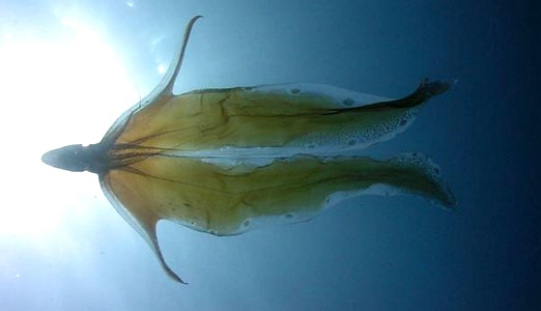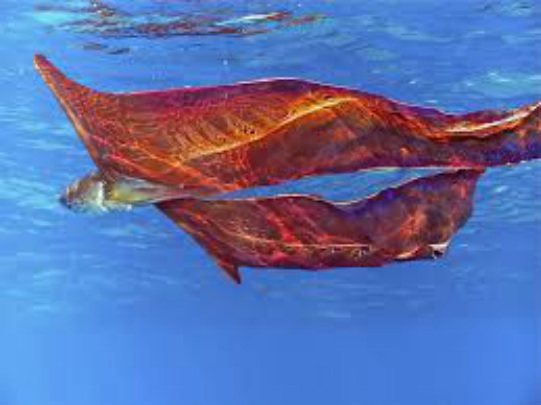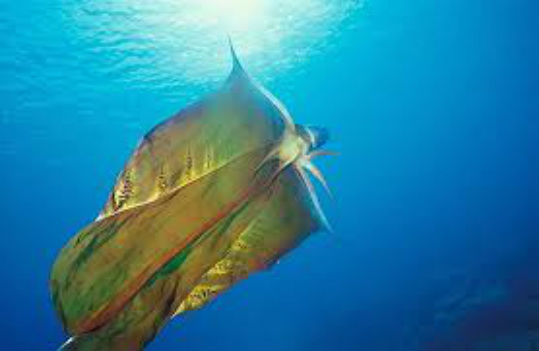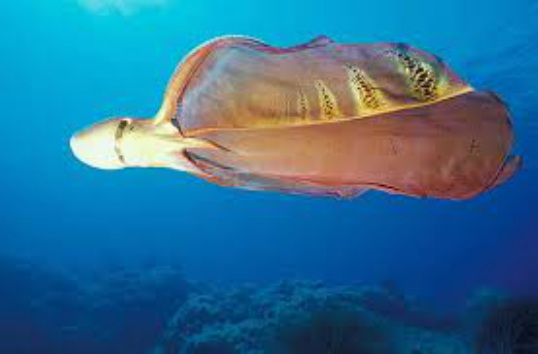|
The fascinating Blanket Octopus Click for video The blanket octopus (Tremoctopus), is a genus with four species that, until recently, had only been described based on female specimens. The reason for this is that the females of this species are large (up to two meters long) and have fleshy, capelike "blankets" that extend down their longest arms, while the males are many orders of magnitude smaller and tens of thousand times lighter, making the blanket octopus one of the most extreme cases of sexual dimorphism in the animal kingdom. The females of many octopus species outgrow their male counterparts, a strategy that seems to work for their non-social system. These reclusive cephalopods live alone and, when the time to mate comes, the females are found carrying an entire clutch of eggs while the males "only" contribute with the sperm, which comes in small packets called spermatophores. The bigger the female, the more eggs she is able to carry, and this translates into better odds at continuing the genetic line. The blanket octopus has taken this principle to such an extreme that it took years to even identify males of the genus, which measure no longer than 2.4 centimetres! It wasn't until just a decade ago that scientists finally found their first identifiable live male blanket octopus. The tiny fellow swam up toward a dive light on a night research light the northern Great Barrier Reef in Australia. To mate with their large female counterparts, who might carry around 100,000 eggs, the males secrete their spermatophores into a pouch on their specialized third right arm (the hectocotylus) and leave it in or on the body of the female, where it will be used to fertilize the eggs when she is ready to lay. The male is assumed to die soon after he has made his contribution, while the female carries the eggs in a long strand until they hatch. The blanket of this particular octopus, which can be rolled up when not in use, helps her appear much bigger to potential predators, a effective defensive strategy in the animal world. The most well studied species of this group, the common blanket octopus or violet blanket octopus (T. Violaceus), also has the ability to drop portions of her web to serve as a distraction to potential predators.
But both males and small females have an additional and surprising option for defence. These octopuses are apparently immune to the sting of Portuguese man-o-wars (Physalia Physalis) and have been known to collect stinging tentacles from the poisonous jellyfish-like creature to wield them like weapons for fending off predators.
0 Comments
Your comment will be posted after it is approved.
Leave a Reply. |
The AuthorA Mind full of Ideas Archives
June 2018
Tags
All
|




 RSS Feed
RSS Feed
